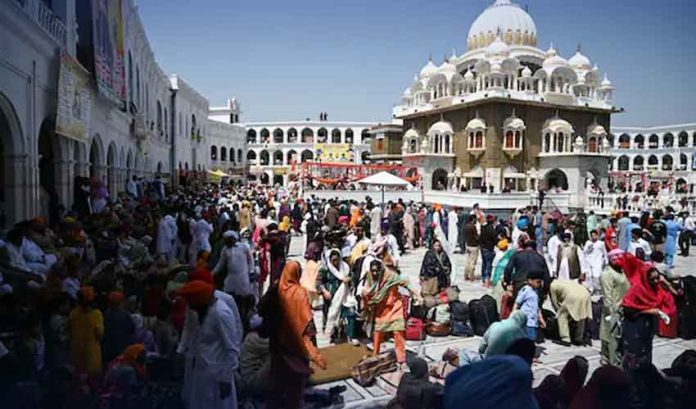The annual Besakhi Mela holds immense significance for Sikhs worldwide, commemorating the Khalsa Panth’s establishment by Guru Gobind Singh in 1699. For over three centuries, this celebration has served as a testament to the enduring spirit of Sikhism, fostering cultural exchange and religious harmony between India and Pakistan.
As more than 3,000 Sikh pilgrims embark on their journey from India to Pakistan, crossing the historic Wagha border, they carry with them not only their faith but also the hopes of unity and understanding across borders. The warm reception by officials from the Evacuee Trust Property Board (ETPB) symbolizes the hospitality and respect extended to pilgrims of all faiths, emphasizing the importance of religious tolerance and cooperation in today’s interconnected world.
The pilgrimage route encompasses several sacred sites deeply ingrained in Sikh history and tradition. From the serene surroundings of Hassanabdal to the revered birthplace of Guru Nanak Dev Ji in Nankana Sahib, each stop along the pilgrimage holds spiritual significance, offering pilgrims a chance to connect with their faith on a profound level. The provision of special trains for transportation underscores the logistical efforts undertaken by the ETPB to ensure a smooth and comfortable journey for the pilgrims, reflecting a commitment to facilitating religious pilgrimage and cultural exchange.
Crucially, the ETPB’s meticulous planning extends beyond transportation logistics to encompass essential amenities such as lodging, security, transportation, and medical facilities. By prioritizing the well-being and safety of the pilgrims, the ETPB reaffirms its dedication to fostering a welcoming environment conducive to religious observance and spiritual reflection.
The Besakhi Mela serves as a poignant reminder of the shared cultural heritage and historical ties that bind the people of India and Pakistan. Despite political differences and occasional tensions, the annual pilgrimage stands as a beacon of hope, transcending boundaries and fostering goodwill between neighboring nations. In an increasingly polarized world, the Besakhi Mela exemplifies the power of religious pilgrimage to bridge divides and promote mutual respect, underscoring the timeless values of peace, harmony, and unity.


